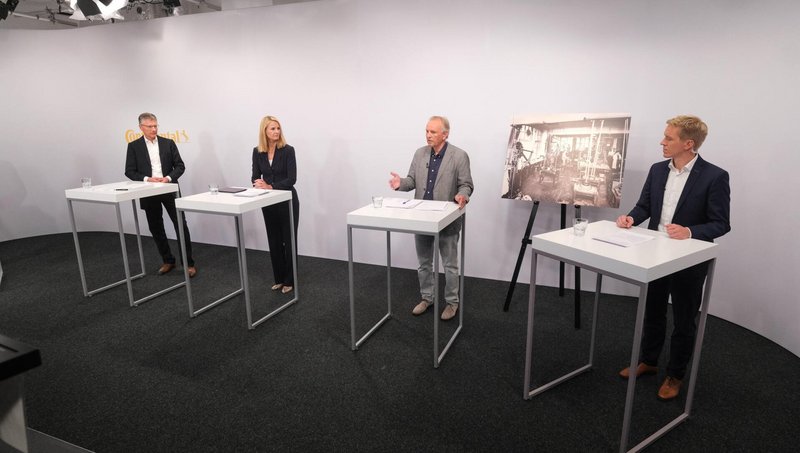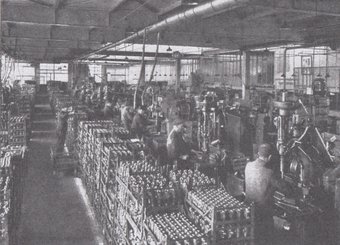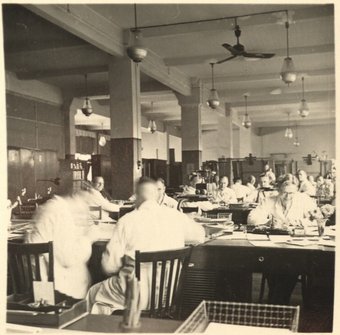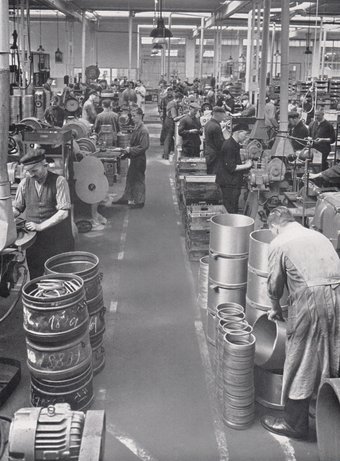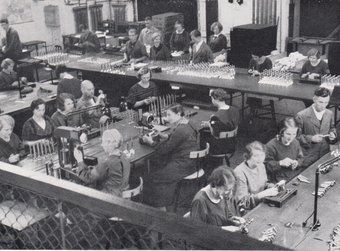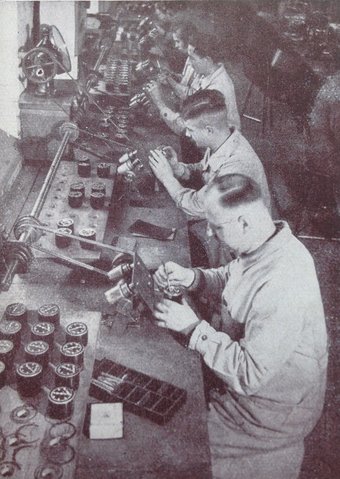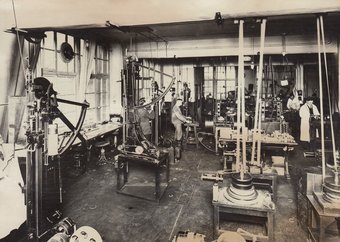Historical Study: Continental in the Era of National Socialism
- Broad-based, independent historical study by corporate historian Prof. Paul Erker sheds light on Continental in the Third Reich
- According to the study, Continental was a pillar of the National Socialist armaments and war economy
- Innovative research approach includes companies that were not part of Continental at the time, i.e. Teves, VDO, Phoenix and Semperit
- CEO Dr. Elmar Degenhart: “We commissioned the study in order to gain more clarity about the darkest chapter in our company’s history. The study is a consciously chosen opportunity and a renewed motive for us to face up to our responsibility and, on the basis of past experiences, to understand our identity more clearly and to create a better future.”
- Under the new “Responsibility and Future” program, lessons from the past are to be made a firmly established part of the company’s corporate culture
Hanover, August 27, 2020. In an independent academic study presented today, Continental has undertaken a comprehensive review of the company’s involvement with the German National Socialist regime. The study traces in detail how Continental became a pillar of the National Socialist armaments and war economy and at the same time benefited economically from the regime’s mobilization and armament policy. The broad-based study entitled “Zulieferer für Hitlers Krieg. Der Continental-Konzern in der NS-Zeit” (Supplier to Hitler’s War. The Continental Group in the Nazi Era)” was conducted by historian Prof. Paul Erker (LMU Munich), who is a renowned expert on corporate history in the Nazi era. The study pursues the conceptually innovative approach of the “virtual corporation” by including those companies that were not yet part of today’s Continental in the period under review, i.e. Teves, VDO, Phoenix and Semperit.
“The study shows that Continental was an important part of Hitler’s war machine,” said Dr. Elmar Degenhart, Continental CEO, adding: “We commissioned the study in order to gain more clarity about the darkest chapter in our company’s history. That’s why we specifically included those companies that were not part of Continental at the time. The study is a consciously chosen opportunity and a renewed motive for us to face up to our responsibility and, on the basis of past experiences, to understand our identity more clearly and to create a better future. This is the duty of each new generation. So today we are by no means drawing a line under this responsibility.”
The study traces in detail how Continental’s corporate culture was gradually distorted and how the company developed into a wartime business. The behavior and decision-making processes of the management at that time are presented in the study as are the experiences of employees. Prior to the war and before the product portfolio became ever more dominated by armaments, Continental manufactured numerous products for the National Socialist leisure and consumer society. “The supplier industry and companies such as Continental, VDO, Teves, Phoenix and Semperit were the backbone of the National Socialist armaments and war economy,” said Erker.
Increasing radicalism reflected in the use of forced laborers and concentration camp prisoners
According to the study, Continental used a total of around 10,000 forced laborers during the Second World War. Their number fluctuated substantially. Their origins were diverse and ranged from Italian “young fascists” to temporary workers from occupied Belgium and French and Russian prisoners of war. Gradually, the nature of their deployment became more and more radical. In the final years of the war, for example, it was concentration camp prisoners who were used in the production of gas masks and in the relocation of production underground. These people were subjected to inhumane living and working conditions. The Continental management was actively involved in this process and contributed to the gradual radicalization of the mobilized workforce. “At Continental there were no ominous signs of a systematic system of repression, but nevertheless there were dynamics of their own on the part of individual functionaries,” comments Erker in the study on the use of forced labor in the company. In this context, he also documents Continental’s involvement in shoe testing tracks, where concentration camp prisoners were exploited and maltreated to the point of debilitation and death.
Corporate culture must be actively cultivated and defended
A key finding of the study is how susceptible Continental’s corporate culture in general was to the Nazi ideology of a corporate community and the political-ideological goals of the Nazi regime. In the case of Continental, the corporate culture was distorted not only from the outside, but also from the inside. “This shows how corporate cultures can quickly topple under pressure from political regimes and opposing social influences,” said Dr. Ariane Reinhart, Continental Executive Board member for Human Relations. “For this reason, corporate cultures must be constantly re-examined, strengthened and continuously developed. This includes a healthy culture of remembrance in order to draw from the past the certainty for our identity today and the lessons for the present and future.”
Study pursues new approach
Continental initiated its study four years ago as a comprehensive, academically neutral portrayal of corporate behavior during the Nazi era. “With the precise reconstruction and analysis of Continental’s history in the period from 1933 to 1945, this reappraisal is an important contribution to international corporate history research,” said Erker. “The study is a history of five companies in the supplier industry that are now jointly part of Continental. This approach provides interesting comparisons and highlights differences as well as similarities.” Teves, for example, succeeded in many cases in evading the attempts of the Nazi authorities to monopolize and influence it, while Continental and VDO cooperated with the regime with far less conflict.
The academic basis of the work was ensured by the fact that Erker was able to conduct his investigation independently and free from any influence or control by Continental. The company made all relevant documents available to him in full and without restriction. The restoration of the company archive in 2016 was a key factor in this regard, as it enabled Erker to access around 30 percent of previously unknown or unevaluated material.
Outlook for the future
“The frank examination of our past is the starting point for stimulating a debate on corporate social responsibility and for integrating it internally into our corporate strategy,” added Degenhart.
As a result of the study, Continental has launched the “Responsibility and Future” program. Its aim is to make continuous learning from the company’s past a firmly established part of its corporate culture. Key elements include the systematic integration of the study results into corporate training, as well as the opening of the company archive to the academic community on the occasion of the company’s 150th anniversary in autumn 2021.
In addition, Continental is sponsoring the new Siegmund Seligmann Scholarship, with which it is promoting research on economic and corporate history during the Nazi era as well as on the history of Continental. The company will also publicly present the names of its former forced laborers in the form of a commemorative plaque, to the extent the names are known. “Without understanding the past and without fully coming to terms with the Nazi era, a conscious and unbiased embarkment into a successful future and the next 150 years of Continental is not possible,” commented Degenhart.
Please find here more information about the study.

Nicole Göttlicher
Spokeswoman, Business & Corporate
Group Communications
Press Pictures (Company Archive)
Press photos to the scientific study on Continental in the Nazi Era.
